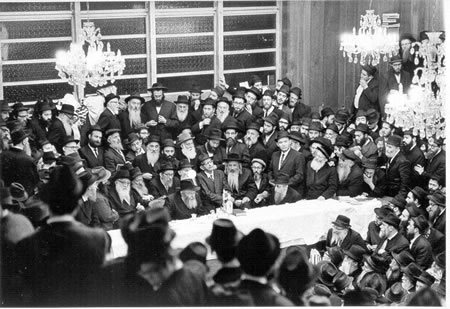Eternal Love, Ahavas Olam
Here, the Alter Rebbe explains how to have ahavas olam, eternal love. The general definition of ahavas olam, is a love that it’s based on one’s understanding of the greatness of G-d, that is, His Creatorship, Kingship, etc. Since it is a love based on understanding, there are two (basic) ramifications: 1. It is limited, like the mind from where the love was born and the subject which was contemplated (existence). a. Subject to change, for better or for worse. 2. It is…









